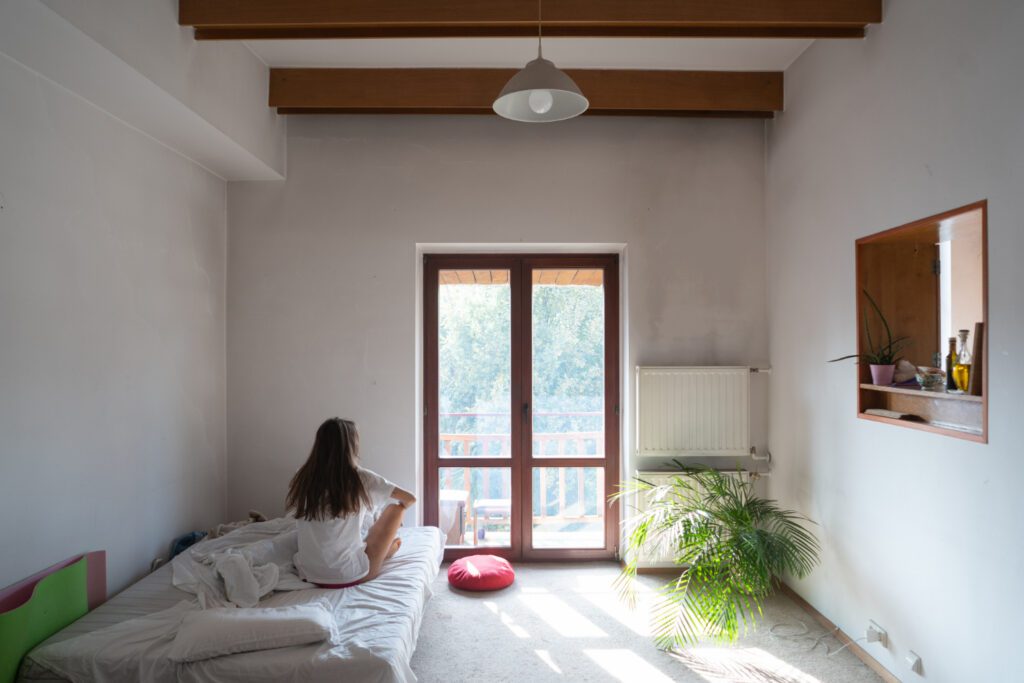How to Sleep Better with Allergies: 9 Simple Fixes
Allergies can make falling and staying asleep much harder. Stuffy noses, sneezing, itchy eyes, and constant coughing can turn bedtime into a restless struggle. Since quality sleep is essential for recovery and overall health, it’s important to find ways to manage allergy symptoms at night. Here are nine simple fixes to help you breathe easier and rest better. For more details, you can check this guide on allergies and sleep.
1. Keep Windows Closed at Night
While fresh air feels nice, open windows let pollen and dust inside, making allergy symptoms worse. If you want to know how to sleep better with allergies, keep windows closed at night and use an air purifier or fan for circulation instead.

2. Shower Before Bed
Allergens like pollen and dust can stick to your skin, hair, and clothes during the day. A quick shower before bedtime helps wash them off, keeping your bed cleaner and your breathing clearer.
3. Wash Bedding Frequently
Dust mites and allergens often build up in sheets, pillowcases, and blankets. Wash bedding once a week in hot water to reduce exposure. Hypoallergenic pillow and mattress covers can also help keep allergens under control.
4. Use an Air Purifier
An air purifier with a HEPA filter can capture allergens like pollen, dust, and pet dander. Place it near your bed so the air you breathe at night stays as clean as possible.
5. Keep Pets Out of the Bedroom
As much as you may love your furry friends, pets can bring dander and pollen into bed. Try keeping them out of the bedroom at night to reduce allergens around your sleeping space.
6. Elevate Your Head While Sleeping
Sleeping flat can make congestion worse. Use an extra pillow to slightly elevate your head, which can help keep your airways more open and reduce nighttime stuffiness.
7. Stay on Top of Medications
If your doctor has prescribed allergy medications, taking them at the right time can make nights more comfortable. Some antihistamines may cause drowsiness, which can actually help you sleep better. Always follow your doctor’s advice before changing your routine.
8. Control Bedroom Humidity
High humidity can encourage dust mites and mold growth, while air that’s too dry can irritate your nasal passages. Aim for balanced humidity (around 40–50%) using a humidifier or dehumidifier if needed.
9. Choose Allergy-Friendly Bedding
Materials like cotton and hypoallergenic fabrics are better at resisting allergens than heavy or synthetic fabrics. A simple switch in pillowcases or sheets may reduce irritation and improve sleep comfort.
Quick Recap of 9 Simple Fixes
- Close windows at night
- Shower before bed
- Wash bedding regularly
- Use an air purifier
- Keep pets out of the bedroom
- Elevate your head while sleeping
- Take medications as advised
- Balance bedroom humidity
- Switch to allergy-friendly bedding
The bottom line: Learning how to sleep better with allergies is about keeping your sleep environment clean, managing symptoms, and making small lifestyle changes. With these simple fixes, you can create a more comfortable bedroom and finally get the rest your body needs.
FAQs: How to Sleep Better with Allergies
1. Why do allergies feel worse at night?
Lying down can make congestion worse, and allergens like dust mites are often more concentrated in bedding.
2. What’s the best sleeping position for allergies?
Sleeping with your head slightly elevated helps reduce nasal congestion and makes breathing easier.
3. Can air purifiers really help with allergies at night?
Yes, especially those with HEPA filters. They can remove common allergens like dust, pollen, and pet dander from the air.
4. Should I wash my bedding more often if I have allergies?
Yes, washing sheets and pillowcases weekly in hot water helps reduce allergen buildup.
5. Do antihistamines help with sleep?
Some antihistamines can cause drowsiness, which may make it easier to sleep, but always check with your doctor before relying on them for rest.

I have learn some excellent stuff here. Definitely value bookmarking for revisiting. I surprise how a lot effort you set to make any such magnificent informative website.
you may have a great weblog right here! would you prefer to make some invite posts on my blog?
Good day! Do you know if they make any plugins to protect against hackers? I’m kinda paranoid about losing everything I’ve worked hard on. Any recommendations?
hi!,I like your writing so much! share we communicate more about your article on AOL? I need a specialist on this area to solve my problem. May be that’s you! Looking forward to see you.
Hiya, I’m really glad I have found this info. Today bloggers publish just about gossips and internet and this is actually irritating. A good web site with exciting content, that is what I need. Thanks for keeping this web-site, I will be visiting it. Do you do newsletters? Cant find it.
Hmm is anyone else experiencing problems with the images on this blog loading? I’m trying to figure out if its a problem on my end or if it’s the blog. Any feedback would be greatly appreciated.
I am glad that I found this weblog, precisely the right information that I was searching for! .